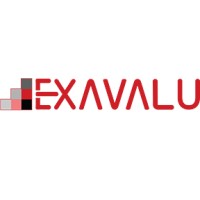

Database Engineer/Architect – Oracle GoldenGate and Redis
⭐ - Featured Role | Apply direct with Data Freelance Hub
This role is a Database Engineer/Architect focusing on Oracle GoldenGate and Redis, offering a remote contract. Key skills include database architecture, Redis, Oracle Goldengate, and PostgreSQL. Proven experience in data replication and system integration is required.
🌎 - Country
United States
💱 - Currency
$ USD
-
💰 - Day rate
-
🗓️ - Date discovered
September 11, 2025
🕒 - Project duration
Unknown
-
🏝️ - Location type
Remote
-
📄 - Contract type
Unknown
-
🔒 - Security clearance
Unknown
-
📍 - Location detailed
United States
-
🧠 - Skills detailed
#Data Architecture #DBA (Database Administrator) #Redis #Scala #SQL (Structured Query Language) #Automation #Disaster Recovery #Oracle #Database Architecture #Data Replication #Oracle GoldenGate #Security #Deployment #Databases #SQL Server #PostgreSQL #Replication
Role description
Hi All
Job Title: Database Architect
Location: Remote
Contract
Top Three Skills Required
• Proven experience in database architecture, particularly with Redis, oracle Goldengate and PostgreSQL.
• In-depth knowledge of Redis data structures, modules, and deployment models (standalone, Sentinel, Cluster). Strong understanding of Oracle Goldengate architecture, configuration, and troubleshooting.
• Familiarity with relational databases (e.g., Oracle) and data replication
Design and Architecture:
• Design, implement, and maintain scalable and high-performance data architectures utilizing Redis as a primary or caching data store, ensuring seamless integration with other systems.
Goldengate Implementation:
• Configure, administer, and troubleshoot Oracle Goldengate for real-time data replication from various sources (e.g., Oracle, SQL Server) to Redis, ensuring data consistency and low latency.
PostgreSQL administration:
• A PostgreSQL database administrator is responsible for managing a firm's PostgreSQL management. They ensure that the database runs smoothly and functions as expected to ensure business goals are achieved. They look for ways to optimize the performance of the database, create backups that come in handy during disaster recovery, and monitor security and access. Develop automation technologies to accelerate the process of data loading.
Hi All
Job Title: Database Architect
Location: Remote
Contract
Top Three Skills Required
• Proven experience in database architecture, particularly with Redis, oracle Goldengate and PostgreSQL.
• In-depth knowledge of Redis data structures, modules, and deployment models (standalone, Sentinel, Cluster). Strong understanding of Oracle Goldengate architecture, configuration, and troubleshooting.
• Familiarity with relational databases (e.g., Oracle) and data replication
Design and Architecture:
• Design, implement, and maintain scalable and high-performance data architectures utilizing Redis as a primary or caching data store, ensuring seamless integration with other systems.
Goldengate Implementation:
• Configure, administer, and troubleshoot Oracle Goldengate for real-time data replication from various sources (e.g., Oracle, SQL Server) to Redis, ensuring data consistency and low latency.
PostgreSQL administration:
• A PostgreSQL database administrator is responsible for managing a firm's PostgreSQL management. They ensure that the database runs smoothly and functions as expected to ensure business goals are achieved. They look for ways to optimize the performance of the database, create backups that come in handy during disaster recovery, and monitor security and access. Develop automation technologies to accelerate the process of data loading.






